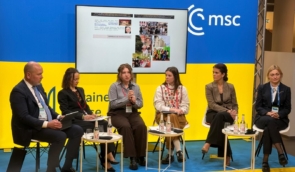Ukraine, Crimea and global security: international guests of the “Crimea Global” discussed de-occupation and the role of international support with the Ukrainian government
On November 16, the Office of the Mission of the President of Ukraine in the Autonomous Republic of Crimea / Crimea Platform hosted a closed-door roundtable titled “Ukraine’s Resilience in War: Challenges, Responses, and International Support”.
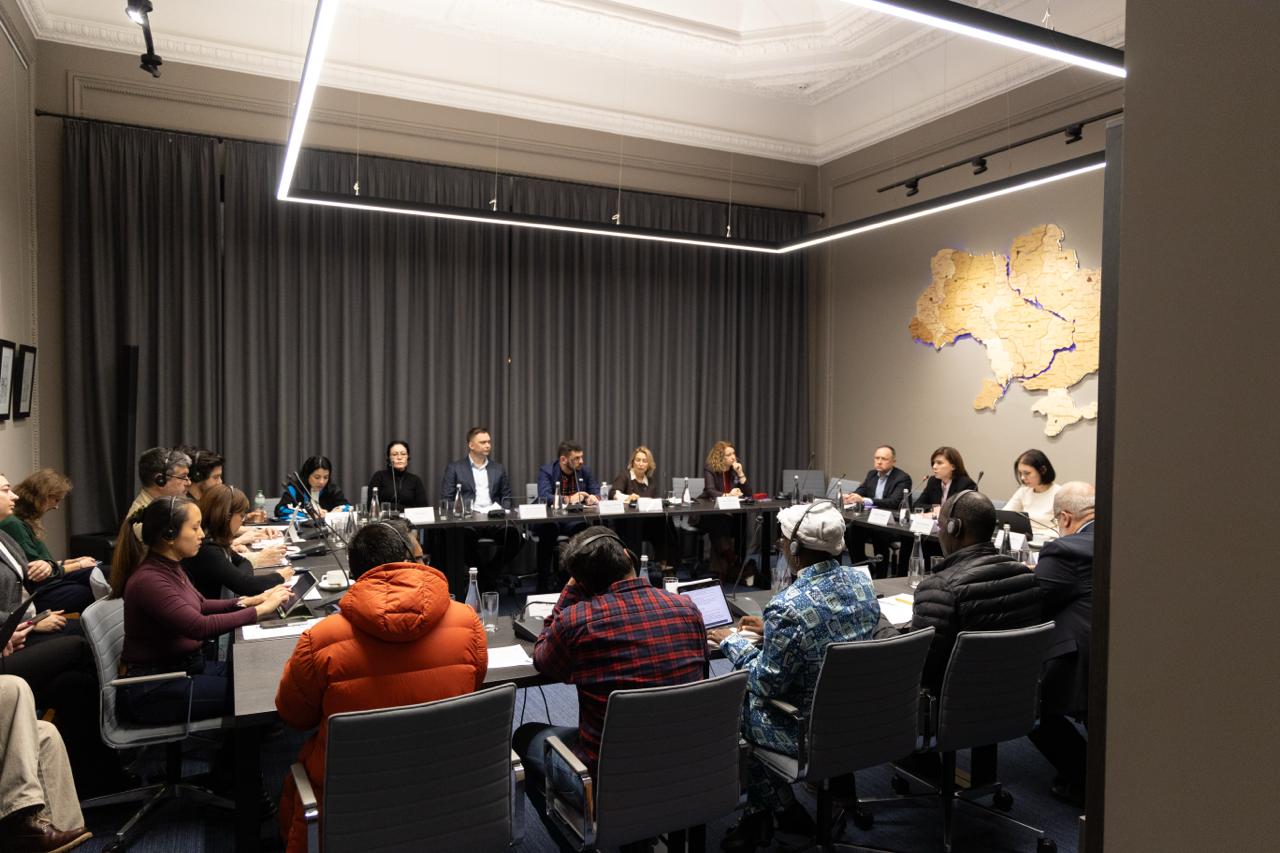
Traditionally, the meeting took place on the eve of the Third International Conference “Crimea Global. Understanding Ukraine through the South”. Its purpose was to demonstrate Ukraine’s resilience in countering Russian aggression and to outline the role of international support.
The discussion brought together Ukrainian officials and representatives of various branches of government, as well as experts, researchers, scholars, and journalists from across Asia, Africa, and Latin America. The debate was moderated by Maria Tomak, Co-organiser of Crimea Global, Chair of the Board of the Media Initiative for Human Rights, and researcher at Truth Hounds.
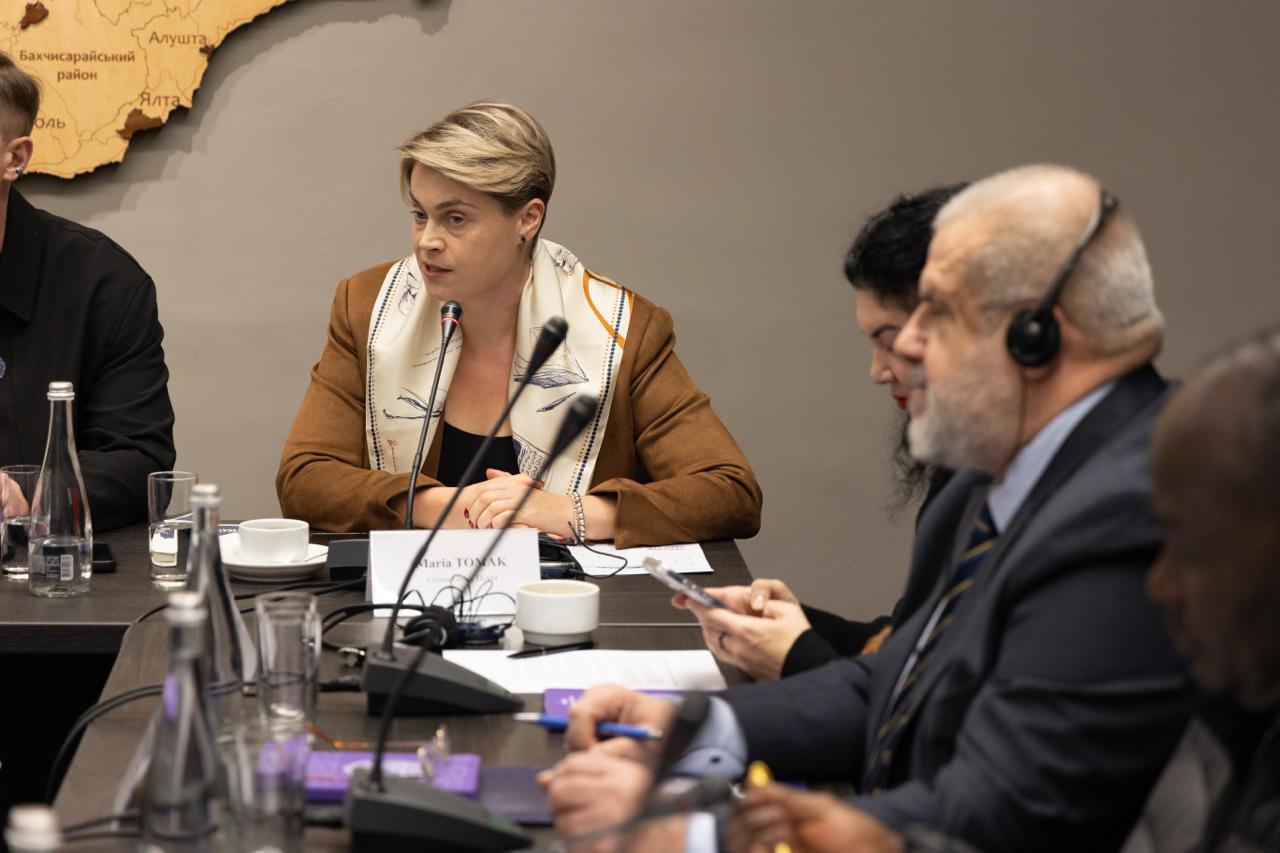 Maria Tomak
Maria TomakThe Permanent Representative of the President of Ukraine in the Autonomous Republic of Crimea, Olha Kuryshko, opened the event by thanking the delegation for their visit to Ukraine and presenting an overview of the situation in occupied Crimea. She emphasised the resilience of Ukrainian citizens who continue to resist the occupation. Olha Kuryshko underscored that the Russian Federation poses a threat not only to Ukraine but to the entire world. Repression in the Crimean Peninsula continues to intensify, and there are now more than 220 political prisoners held by Russia. She also drew attention to the increasing pressure exerted by the occupying authorities on women, independent media, and academics.
The Permanent Representative stressed separately the importance of consolidating global efforts to counter Russia’s attempts to legitimise the occupation of Crimea by seeking support from other states.
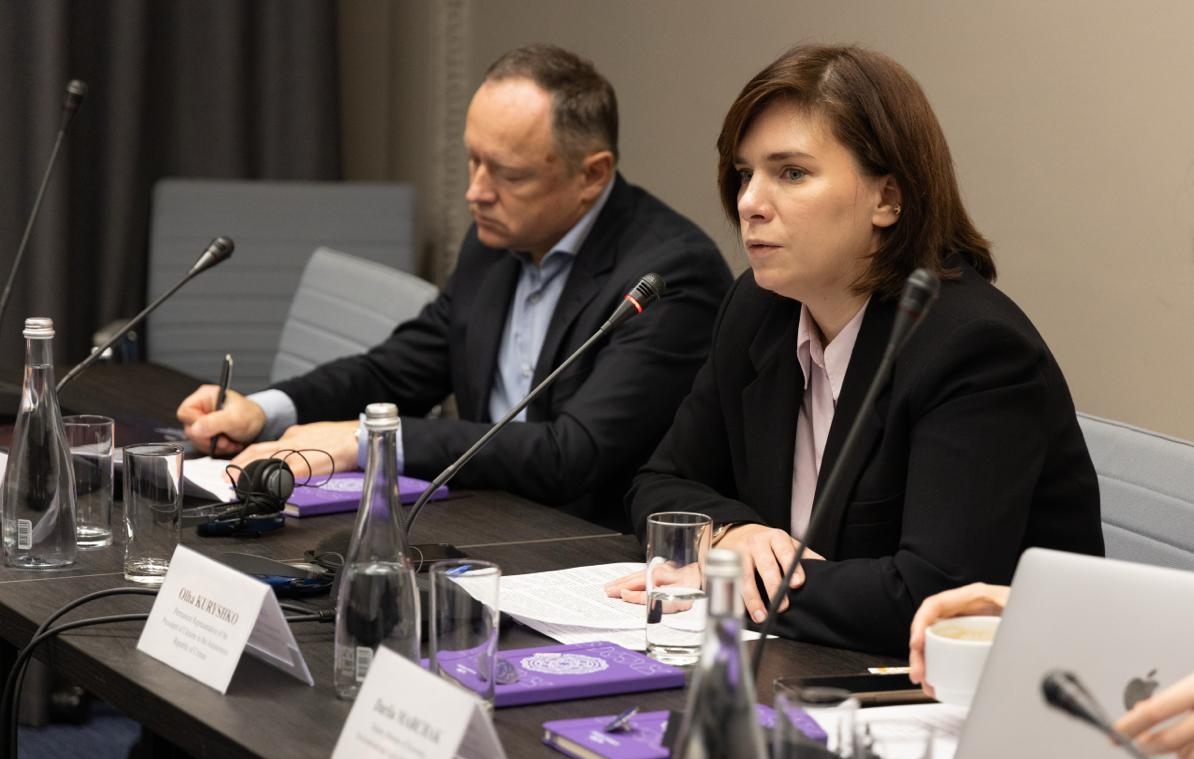 Olha Kuryshko
Olha KuryshkoDeputy Minister for Economy, Environment, and Agriculture of Ukraine, Dariia Marchak, explained that it is critically important for Ukraine to ensure the return of all citizens who became refugees in EU countries or were forced to remain in the occupied territories. She also noted that while the enemy continues to launch massive strikes on Ukraine’s infrastructure, the Ukrainian economy is working according to the principle of build back better.
Advisor to the Head of the Office of the President of Ukraine, Oleksandr Bevz, emphasised that Russia’s war against Ukraine is primarily ideological, driven by the desire to subjugate the entire country. He noted that the security of Ukraine and Europe is a matter of global security. According to him, Russia’s main objective in the current war is not territory, and therefore, territorial concessions cannot serve as a basis for ending the conflict. Ukraine needs a peace agreement that guarantees long-term peace, territorial integrity, sovereignty, and security. Oleksandr Bevz stressed that Russian representatives resort to historical manipulation and threats even during negotiations — an approach that is absurd for the civilised world — and that the ideology of destroying Indigenous peoples lies at the core of Russia’s attack on Ukraine.
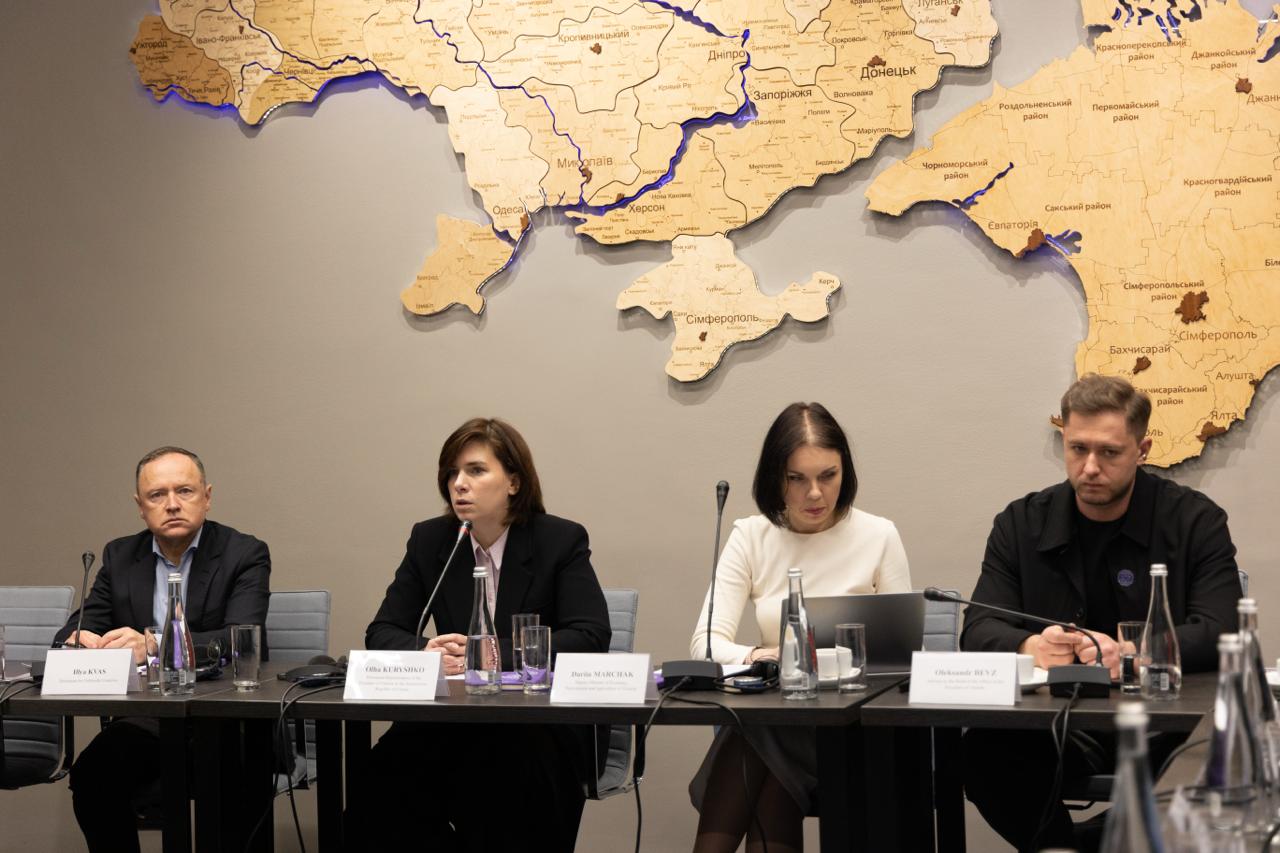
Volodymyr Stetsyk, Acting Head of the Office for Investment Attraction in Ukraine’s Defence Industry, underlined that Ukraine is fighting not only for its own freedom but also for the security of Europe. Under such conditions, three factors are decisive: support from international partners, a capable and technologically prepared army, and a competitive defence industry.
He emphasised that the Investment Attraction Office is systematically working to develop the defence sector, with people at its centre. A modern talent pool is now being formed, new opportunities for professional growth are being created, and an attractive image of the defence industry is being shaped for young people, educational institutions, and the labour market.
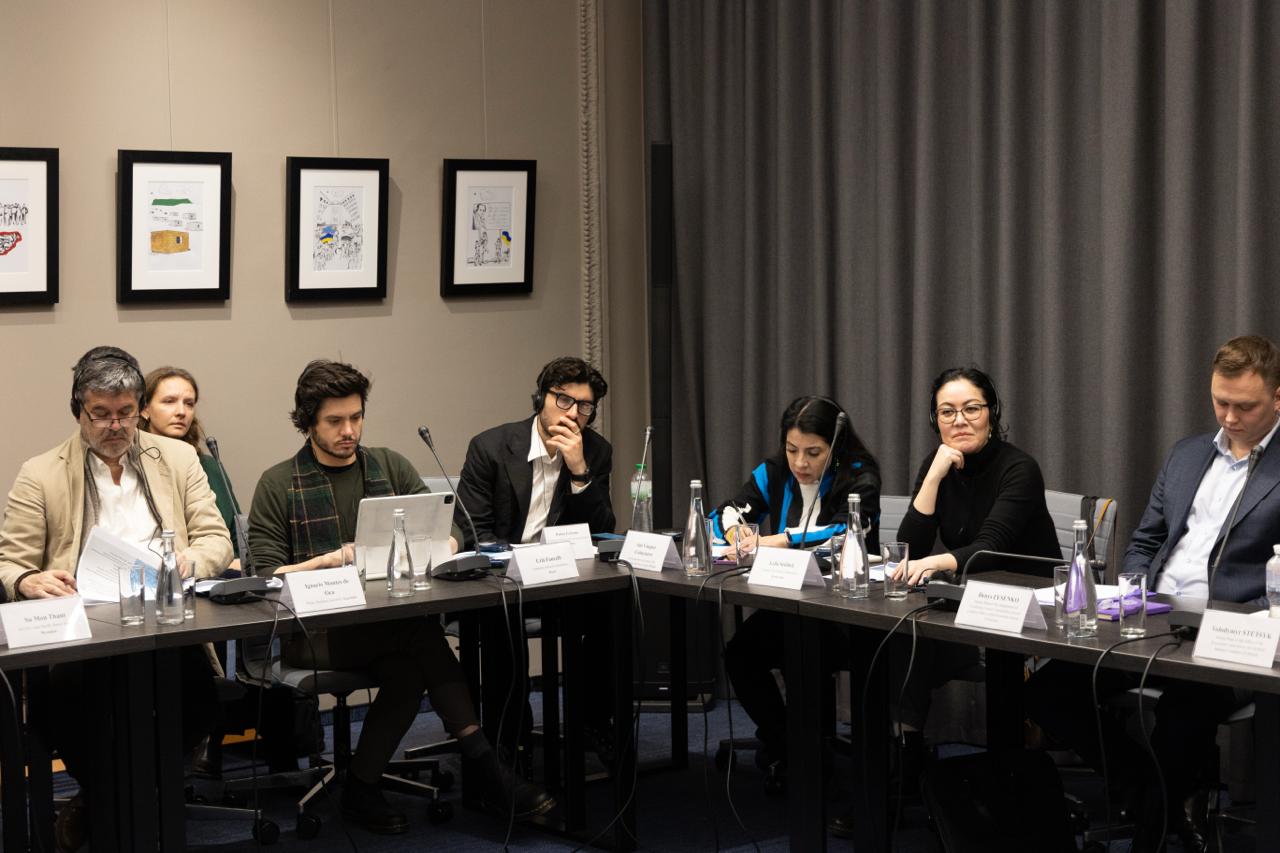
Member of the Parliament of Ukraine, Tamila Tasheva, spoke about parliamentary strategies concerning Crimea and all temporarily occupied territories of Ukraine. She noted that due to Russian propaganda, many countries lose sight of Ukrainian narratives and lack understanding of the current situation on the Crimean Peninsula. Therefore, it is essential to communicate with international audiences not only through figures and data but also through real human stories.
She also highlighted Parliament’s efforts to strengthen cooperation with the countries of the Global South. In her address, she mentioned the Global Coalition for Ukrainian Studies, including Crimean Tatar Studies, and stressed the importance of international academic exchange.
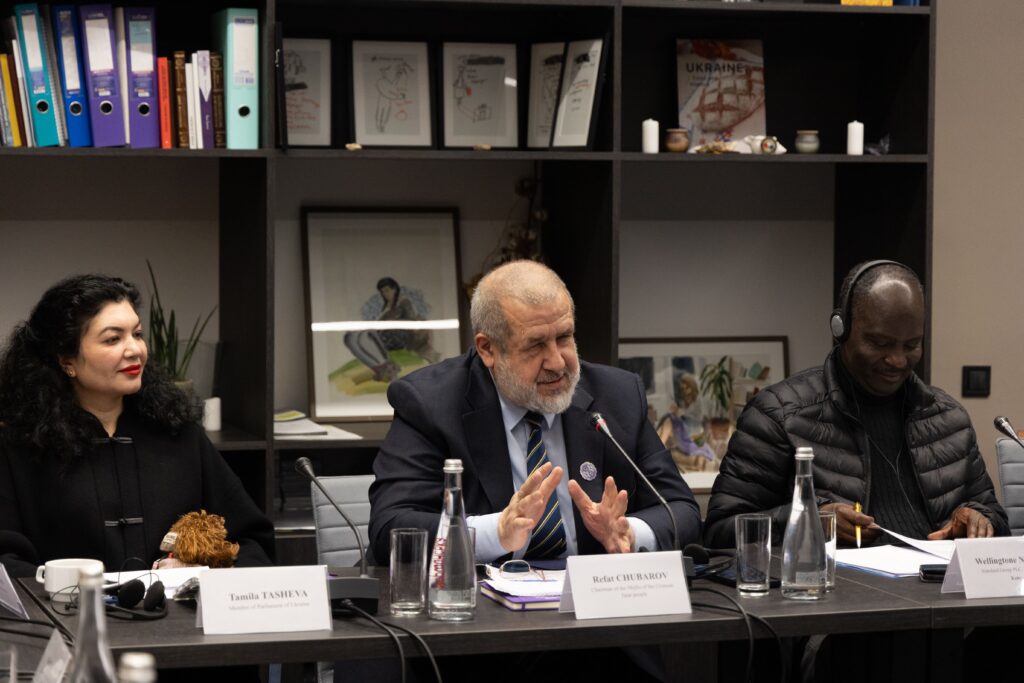
Refat Chubarov, Chairman of the Mejlis of the Crimean Tatar People, stressed that when Russia staged its pseudo-referendum and illegally occupied Crimea, the world did not respond adequately and instead sought diplomatic compromise with Russia. Ending the war and de-occupying Ukrainian territories requires global efforts; therefore, other states must take decisive action without making concessions to the aggressor.
He noted that in an attempt to erase Crimean Tatars, the occupying administration is changing place names, closing Crimean Tatar and Ukrainian schools, and creating conditions of constant pressure, repression, and threats of mobilisation. As a result, 50,000 Crimean Tatars have been forced to leave Crimea.
Oksana Dramaretska, Director of the Department for Latin America and the Caribbean, emphasised the need to engage partner countries to ensure broader coverage of the situation in Ukraine, noting the importance of exerting pressure on Russia across all available international media platforms. She also stressed that cooperation with Latin America is essential for providing humanitarian assistance to civilians affected by Russia’s war against Ukraine.
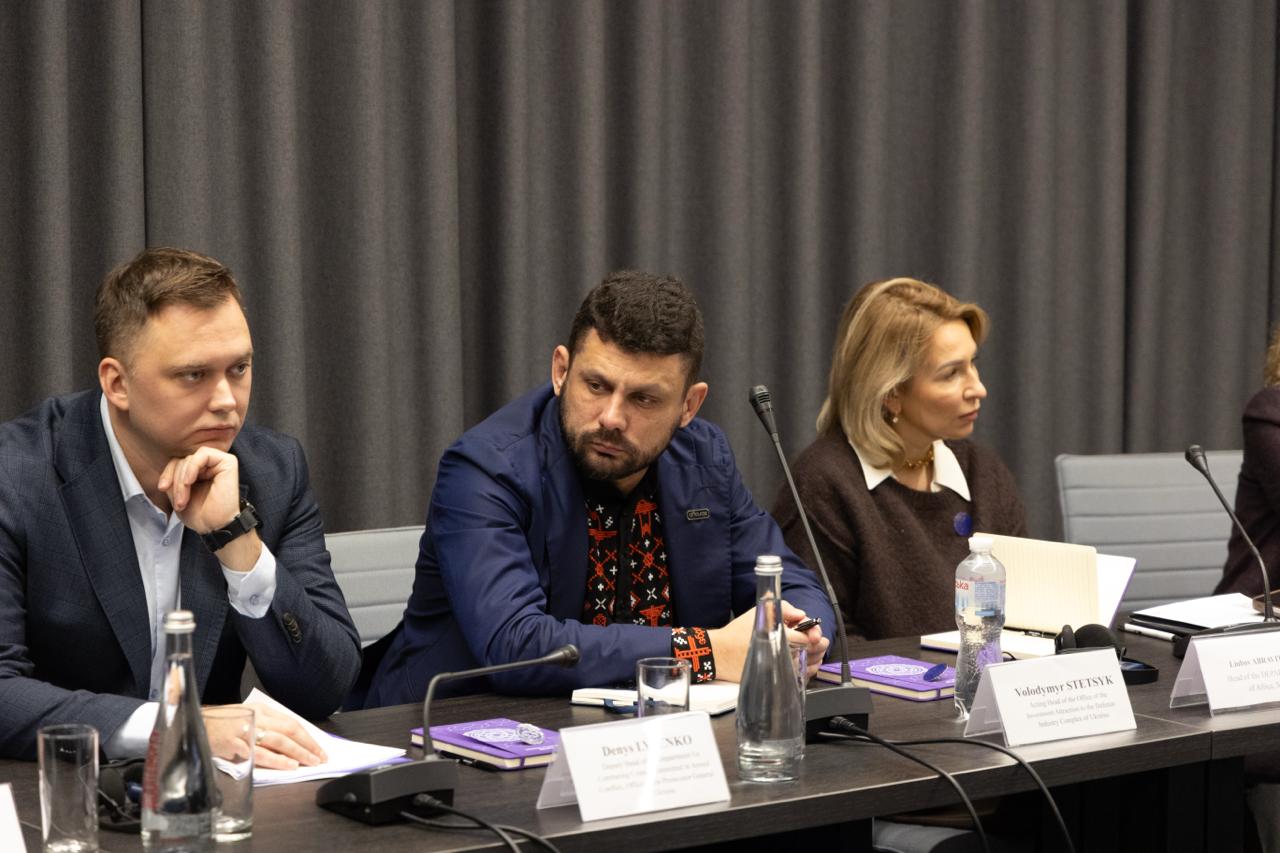
Liubov Abravitova, Director of the Department for Africa at the Ministry of Foreign Affairs of Ukraine, stated that support of African countries is significant for Ukraine. Unfortunately, some African states continue to cooperate with Russia, including by purchasing Ukrainian grain stolen by the occupiers. She further stressed the significance of the International Coalition for the Return of Ukrainian Children.
Denys Lysenko, Deputy Head of the Department for Combating Crimes Committed in Armed Conflict, Office of the Prosecutor General of Ukraine, noted that Ukraine began documenting Russian crimes immediately after the onset of Russian aggression. While Ukraine continuously improves its system for reporting and investigating crimes, it does not have access to data on individuals located in the occupied territories. Denys Lysenko called on international partners to advance international cooperation toward the investigation of war crimes committed on the territory of Ukraine.
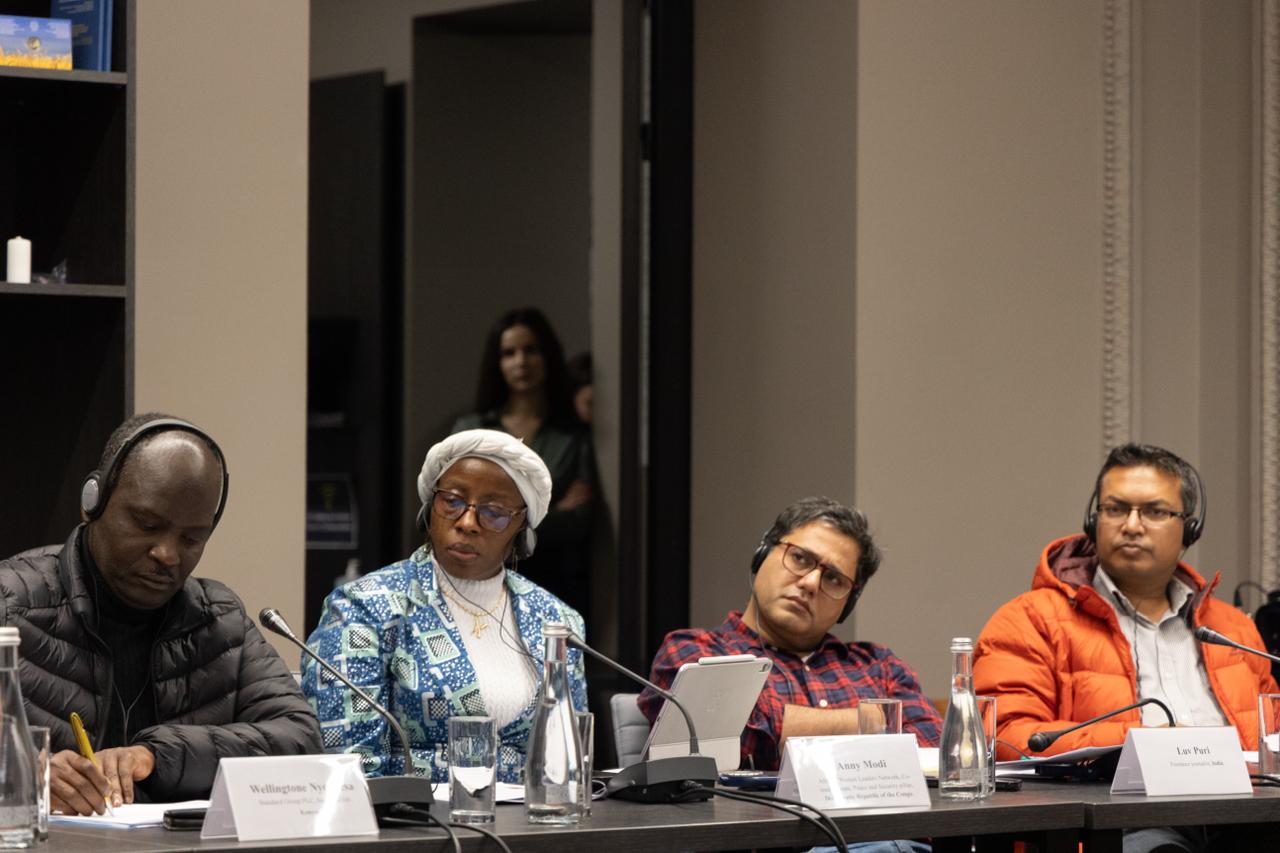
Participants of the “Crimea Global” conference actively joined the discussion, asking questions and sharing their ideas.
Оn November 14, the conference participants visited Lviv, where they met with Lviv Mayor Andriy Sadovyi and his First Deputy Andriy Moskalenko at the Lviv City Hall, honoured the memory of the fallen defenders of Ukraine at the Field of Honor at Lychakiv Cemetery and visited the UNBROKEN National Rehabilitation Center and the Prosthetics and Orthotics Center.
On November 15, the participants of the international conference “Crimea Global. Understanding Ukraine through the South” continued their visit to Ukraine and travelled to Kharkiv, where they met with the leadership of the Kharkiv Regional Military Administration, visited Pivnichna Saltivka and saw the scale of the destruction from the Russian attacks. International experts also learned about Kharkiv’s modern security solutions and visited an underground school — the Korotych Lyceum. Members of the delegation honoured the memory of the children killed in the war and laid toys at the memorial symbolising lives cut short by the conflict.
A reminder that today marks the first day of the Third International Conference “Crimea Global. Understanding Ukraine through the South”.
Photos: Mission of the President of Ukraine in the Autonomous Republic of Crimea.
If you have found a spelling error, please, notify us by selecting that text and pressing Ctrl+Enter.

